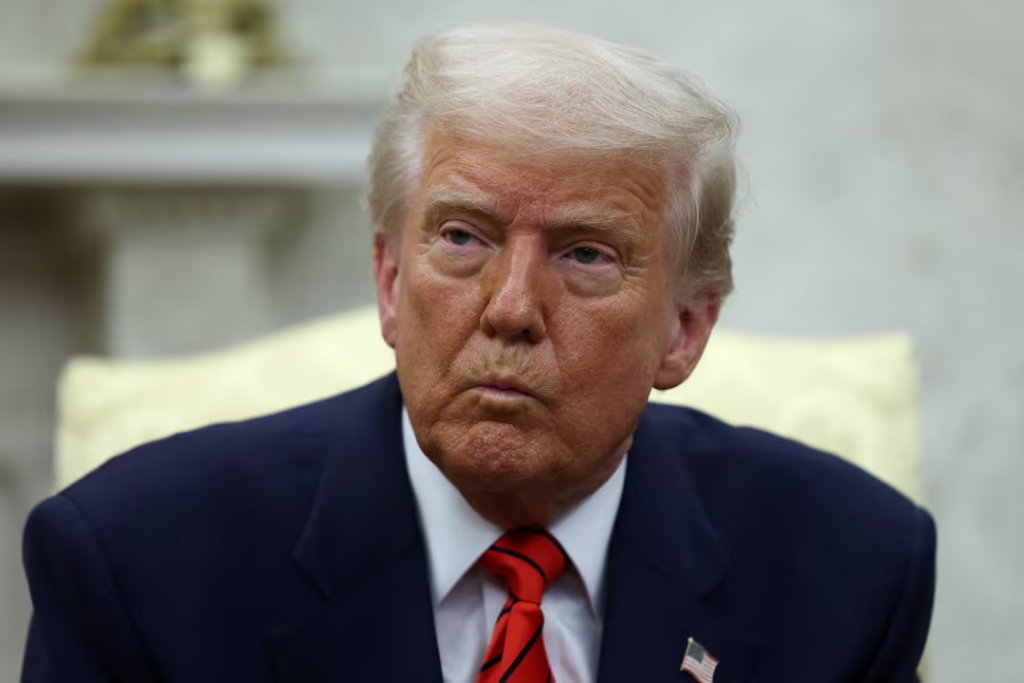U.S. President Donald Trump recently hinted at the possibility of serving a third term, telling “Meet the Press” on Sunday that while he’s “focused on the current” and it’s “very early in the administration,” many Americans would like him to run again. Trump reiterated, “I’m not joking,” when referencing his past remarks about staying in power beyond two terms. He previously told GOP lawmakers, “I suspect I won’t be running again unless you say, ‘He’s so good we’ve got to figure something else out.’”

The 22nd Amendment to the U.S. Constitution limits presidents to two elected terms. However, Trump argues it bars third terms only if the two terms are consecutive. This interpretation, which legal scholars widely reject, would mean Trump could run for a third term due to the four-year gap between his first and second terms.
Trump suggested “methods” he could use to serve a third term, acknowledging the possibility of running as vice president in 2028. The scenario would involve his running mate resigning after winning the election, allowing Trump to assume office. Trump declined to elaborate on other potential methods.
While Trump’s suggestion might seem far-fetched, legal experts have debated this scenario for years. In a 1999 article, legal scholars Bruce G. Peabody and Scott E. Gant noted the 22nd Amendment doesn’t explicitly prohibit a former president from serving again without being elected—such as through the line of succession. However, the 12th Amendment states, “No person constitutionally ineligible to the office of President shall be eligible to that of Vice-President of the United States.” This contradiction would likely prompt intense legal scrutiny and constitutional challenges.
Rep. Andy Ogles (R-Tenn.) recently introduced a resolution to amend the Constitution to allow a third term if the first two terms were not consecutive. However, the proposal would need a two-thirds majority in both the House and Senate and approval from three-quarters of all states—a nearly impossible feat given the current political landscape.
Attorney General Pam Bondi confirmed during her Senate confirmation hearing that Trump would be constitutionally barred from running for a third term unless the Constitution is amended.
Trump’s suggestion mirrors moves by global leaders who have circumvented term limits, including Russian President Vladimir Putin and Chinese President Xi Jinping. Putin maintained power in 2008 by serving as prime minister, later returning to the presidency after extending term limits. Similarly, Xi’s government abolished term limits, allowing him to stay in power indefinitely.
The 22nd Amendment was passed by Congress in 1947 and ratified in 1951 after Franklin D. Roosevelt broke the two-term precedent set by George Washington, serving four consecutive terms.
Though a third term is constitutionally improbable, Trump’s remarks have reignited speculation. Allies like Steve Bannon have publicly discussed plans for Trump to run in 2028, suggesting legal strategies are being explored.
Whether these ideas gain traction remains to be seen, but the debate highlights ongoing questions about constitutional limits and the resilience of American democracy.



